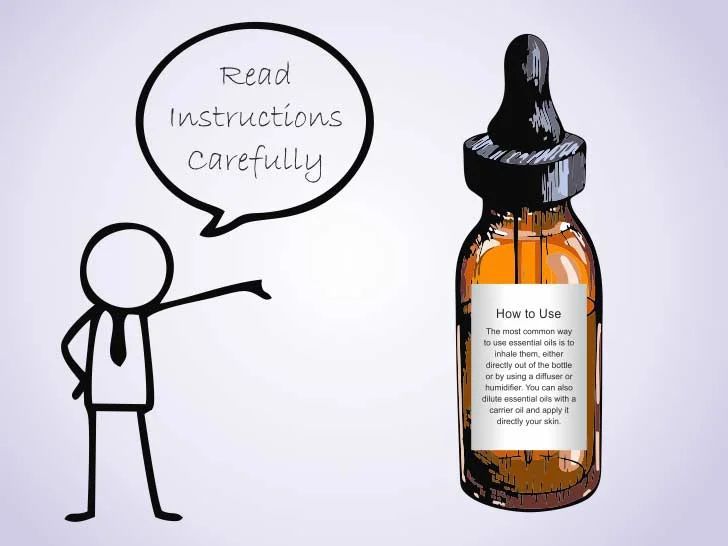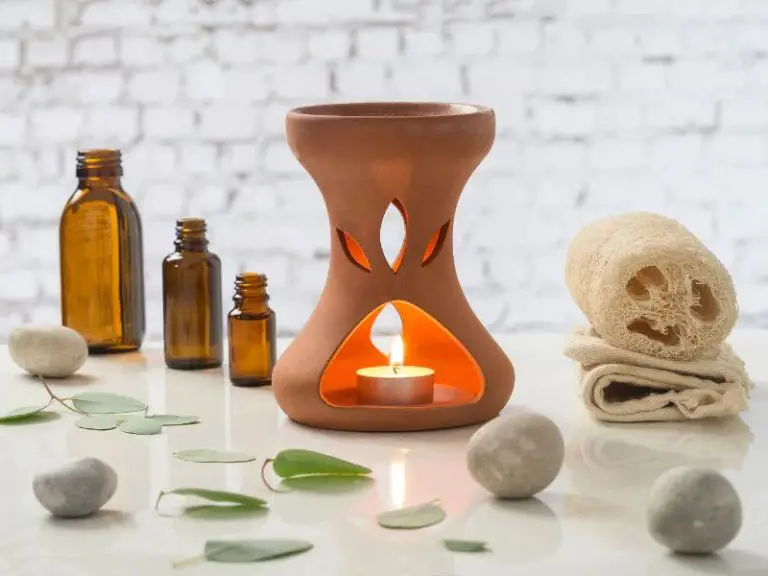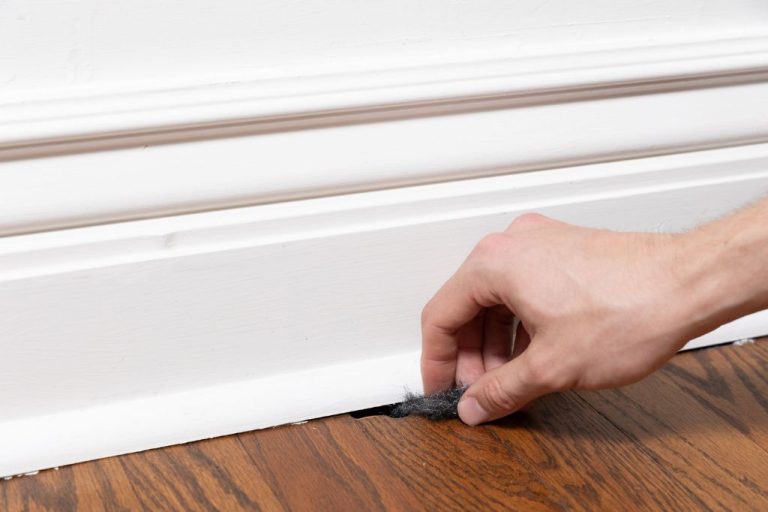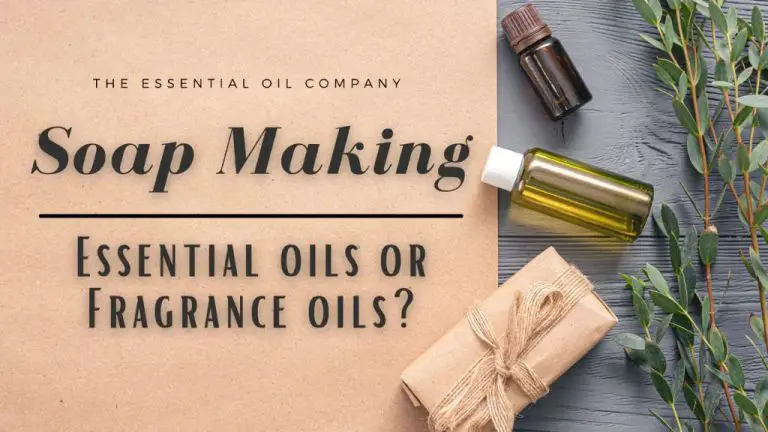Can Fragrance Oils Be Used For Diffusers?
What Are Fragrance Oils?
Fragrance oils, also known as aromatic oils, are synthetic oils that are created to smell like natural oils and extracts. They are artificially created fragrances that are made from a blend of aromatic chemicals, solvents and preservatives 1. While fragrance oils try to mimic natural scents like fruits, flowers, and spices, they do not contain any actual extracts from these sources.
Fragrance oils are different from essential oils, which are directly extracted from plants through methods like distillation. Essential oils contain the true essence and aroma of the plant itself. Fragrance oils, on the other hand, are artificially created in labs to try and replicate natural scents 2.
There are many types of fragrance oils catered to different uses. Some common varieties include:
- Candle fragrance oils – Formulated for candle making
- Soap fragrance oils – Blended for soap making
- Perfume fragrance oils – Created for personal fragrances
- Cleaning fragrance oils – Designed for household cleaners
Fragrance oil scents can range from fruity and floral, to earthy and herbal. Popular fragrance oil scents include vanilla, cinnamon, rose, lavender, citrus fruits, pine, and more.
What Are Diffusers?
Diffusers are devices used to disperse essential oils into the air. They allow you to experience the aromatherapy benefits of essential oils by dispersing their scent into a room or area. There are several different types of diffusers that work in various ways:
Nebulizing diffusers use pressurized air to turn essential oils into a fine mist. This doesn’t use heat or water, just air pressure to diffuse the oils.
Ultrasonic/humidifying diffusers use ultrasonic vibrations to diffuse essential oils with water. As the vibrations pass through the water and oil, they break up the oil particles and disperse a fine mist.
Evaporative diffusers use a fan to blow air across a wick or absorbent pad to help essential oils evaporate into the air more quickly.
Heat diffusers use low heat to warm essential oils and help them diffuse more efficiently into the air.
Regardless of the type, diffusers provide an efficient way to experience the benefits of aromatherapy by dispersing essential oil molecules into the air we breathe.
Can You Use Fragrance Oils in Diffusers?
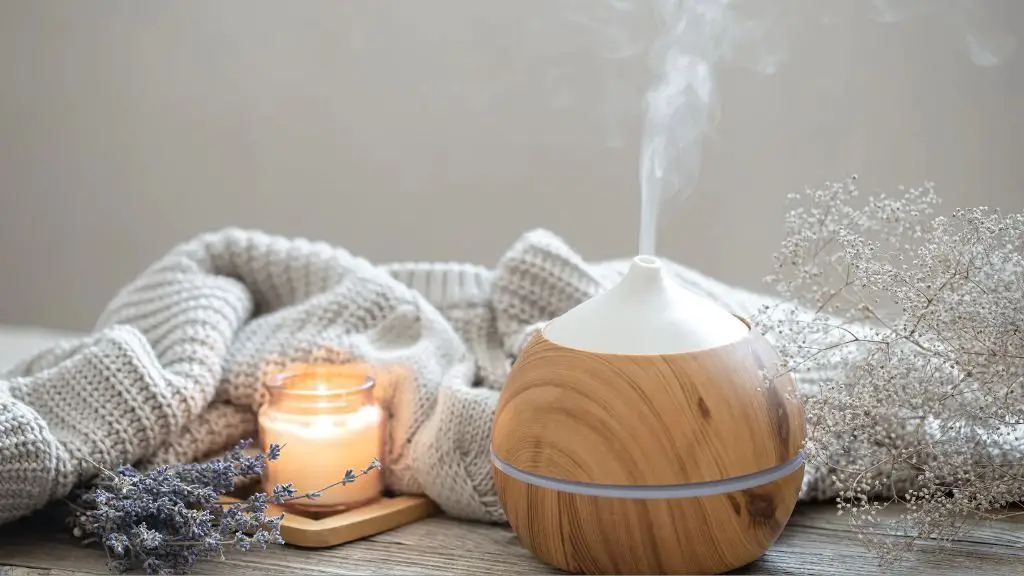
In short, yes you can use fragrance oils in diffusers. However, there are some important considerations when using fragrance oils instead of essential oils in your diffuser.
Fragrance oils contain synthetic aroma compounds, while essential oils are extracted from plants. The main advantage of fragrance oils is that they come in a huge variety of scents at a lower cost than essential oils. They also tend to have stronger scents than essential oils.
Most diffusers that work with essential oils will also work with fragrance oils. However, fragrance oils should always be diluted before putting them in a diffuser. Using undiluted fragrance oils or oils not intended for diffusion can damage the diffuser.
While fragrance oils are not considered toxic, some may irritate those with sensitivities. It’s best to spot test on a small area of skin before diffusing a new fragrance oil. Proper dilution and ventilation will also help avoid irritation.[1]
So in summary, fragrance oils can absolutely be used in diffusers safely as long as they are diluted and care is taken to avoid irritation in those with sensitivities.
Benefits of Using Fragrance Oils in Diffusers
There are several important benefits to using fragrance oils in diffusers:
Diffusing fragrance oils allows you to enjoy aromatherapy benefits. Fragrance oils contain aromatic compounds that can have physiological and psychological effects when inhaled. Certain scents are thought to promote relaxation, improve mood, boost energy levels, and more. Diffusing fragrance oils allows the aromas to disperse in the air so you can fully experience these potential benefits.
Fragrance oils can be used to scent the air in your home or workspace. The mist from the diffuser spreads the fragrance throughout the room, letting you enjoy a pleasant ambient scent. This can create a calming environment or energizing atmosphere, depending on the fragrance oil used.
According to Healthline, diffusing certain essential oils can reduce stress, anxiety, and depression.
Compared to essential oils, fragrance oils tend to be much more cost-effective. Since they are synthetically created, fragrance oils avoid the higher costs associated with distilling large quantities of plants or flowers. You can enjoy an array of scents at a fraction of the price of pure essential oils.
Drawbacks of Fragrance Oils for Diffusers
While fragrance oils can be used in diffusers, they do come with some drawbacks compared to essential oils according to Nikura (https://nikura.com/blogs/discover/can-you-use-fragrance-oil-in-a-diffuser). One issue is that fragrance oils can clog diffusers more easily than essential oils. The synthetic ingredients in fragrance oils tend to be thicker and can leave more residue. This means you may need to clean your diffuser more frequently when using fragrance oils.
Another downside is that fragrance oils contain synthetics, whereas essential oils are all natural. The synthetic chemicals in fragrance oils may be more irritating for some people, especially those with sensitivities. Diffusing fragrance oils could potentially trigger headaches, nausea, or breathing issues in sensitive individuals.
Finally, fragrance oils typically need to be diluted before being used in diffusers. Using undiluted fragrance oils can clog diffusers very quickly. You’ll need to dilute fragrance oils in a carrier oil to prevent issues. This extra dilution step takes more time and effort compared to using essential oils directly.
Diluting Fragrance Oils for Diffusers
Fragrance oils are highly concentrated and need to be diluted before use in diffusers. Using undiluted fragrance oils can lead to overwhelming scents and even damage your diffuser. The general recommendation is to dilute fragrance oils at a 3-10% ratio with a carrier oil or water.
Some of the best carrier oils to dilute fragrance oils with for diffuser use include:
- Fractionated coconut oil – odorless and won’t go rancid
- Jojoba oil – shelf stable and mixes well with fragrances
- Sweet almond oil – absorbs fragrances beautifully
A good starting ratio is 3-5 drops of fragrance oil per ounce of carrier oil. For a 100mL diffuser, that would be about 15-25 drops of fragrance oil mixed with the rest carrier oil. You can adjust the concentration up or down based on your scent preferences.
When diluting with water for a diffuser, aim for 15-20 drops of fragrance oil per 100mL of water. Always add the fragrance oil to the water, not the other way around. Shake or stir well before use.
It’s recommended to stick to the recommended dilutions. Using too much fragrance oil can clog diffusers over time. Test concentrations first to find the ideal dilution for your needs.
How to Use Fragrance Oils Safely
When using fragrance oils in diffusers, it’s important to follow some safety precautions. Here are some tips for using fragrance oils safely:
Properly dilute the fragrance oil. Only use a few drops of fragrance oil per ounce of water or diffuser oil. Using too much fragrance oil can cause headaches, nausea, and other side effects. Follow the dilution recommendations on the label. A good rule of thumb is 2-3 drops per ounce.
Ventilate the room. Diffusing fragrance oils can fill a room with scent very quickly. Make sure to leave windows and doors open to allow fresh air to circulate. This helps prevent the fragrance from becoming overwhelming.
Do a spot test first. Before diffusing a new fragrance oil, apply a diluted drop to your skin. If any irritation occurs, do not use that oil in your diffuser.
Read all labels and instructions. Pay attention to any warnings or safety information provided with the fragrance oil. Follow the manufacturer’s directions for proper use and care.
Avoid prolonged exposure. Only diffuse oils for the recommended time, such as 1-2 hours. Take breaks between diffusing sessions. Overexposure can cause sensitization or other effects.
Keep diffusers out of reach of children and pets. The concentrated oils can be harmful if ingested.
Top Fragrance Oils for Diffusers
Some of the most popular fragrance oils for use in diffusers include:
- Floral scents like Almond Blossom, Lavender, Rose, Jasmine, and Ylang Ylang.
- Citrus scents like Lemon, Lime, Grapefruit, and Orange.
- Herbal scents like Chamomile, Sage, Peppermint, and Eucalyptus.
- Woodsy scents like Pine, Cedarwood, and Sandalwood.
- Spice scents like Cinnamon, Nutmeg, and Clove.
Some popular fragrance oil blends for diffusers include:
- Relaxing blends like Lavender-Chamomile or Geranium-Ylang Ylang.
- Uplifting citrus blends like Grapefruit-Lime or Lemon-Orange.
- Herbal blends like Rosemary-Mint or Lemongrass-Tea Tree.
- Spicy blends like Cinnamon-Orange or Ginger-Nutmeg.
When selecting fragrance oils, it’s best to choose lighter, purer scents rather than heavy musky or perfumey scents for diffusers.
Storing and Caring for Fragrance Oils
Proper storage is key to preserving the scent of fragrance oils. Exposure to light, heat, and oxygen can cause the oils to lose their potency over time. The best way to store fragrance oils is in tightly sealed glass containers kept in a cool, dark place like a cupboard or drawer.
Glass helps prevent the oils from absorbing plastic odors or chemicals. It also limits exposure to oxygen compared to plastic bottles. Tight lids minimize air circulation and block out light. Store bottles away from heat sources like stovetops or heating vents which can alter the fragrance.
Avoid clear glass as it allows in light. Colored glass like amber or cobalt blue works best. Only decant the amount of oil needed at one time rather than continually opening the main bottle. Test older oils occasionally to ensure they haven’t lost strength. Replace any oils that smell faded or off. With proper storage, most fragrance oils can retain their scent for 1-2 years. For more tips, see this guide.
Fragrance Oil Diffuser Blends
Suggested fragrance oil blend recipes for diffusers often combine complementary scents to create inviting aromas. Here are some popular pre-mixed and DIY fragrance oil diffuser blends:
Floral blends: Mix rose, jasmine, and ylang ylang for a romantic bouquet. Or try lavender, neroli, and geranium for a relaxing floral medley.
Citrus blends: Combine lemon, grapefruit, and bergamot for an uplifting, energizing aroma. Or mix tangerine, lemon, and lime for a sweet, fruity blend.
Spice blends: Cinnamon, clove, and orange is a popular combination with a warm, cozy scent. Cardamom, nutmeg, and ginger also pair nicely.
Minty blends: Peppermint, spearmint, and eucalyptus promote alertness. For relaxation, blend lavender and peppermint.
Woodsy blends: Sandalwood, cedarwood, and pine create an outdoorsy aroma. Or try fir needle, spruce, and cypress.
You can also find pre-mixed fragrance oil blends for diffusers in a range of scents from floral to spice to fresh linen. Experiment with combining single note and blended oils to create your own signature diffuser aromas.

